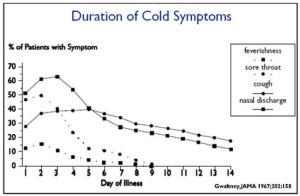
It’s no secret that college students live in a world prone to disease. A simple sneeze jumps from the lips of one student to the throat of another and before you know it, common disease symptoms, brushed off as allergies, have spread throughout campus like wildfire.
According to Mayo Clinic, the most common way for a disease to spread is through direct contact between two people. And it’s also no secret that in college towns, common contact of all kinds is a part of our daily routine. High fives, free hugs, handshakes, kisses, you name it; getting sick is an inevitable part of syllabus week.
The most prominent sickness found on college campuses is the common cold. Many viruses can be the leading cause someone comes down with the sickness, but more often than not, a virus called rhinovirus is to blame. Once inside our bodies, cells coating the inside of the nose form the primary breeding ground for Rhinovirus. From there, our immune systems take over. The article What Causes the Common Cold explains how our body opens up blood vessels through inflammation, causing a runny nose and a stuffed up feeling. The sneezing comes from the increased presence of fluids and irritation from the virus. Then a few days after the initial symptoms, a cough, caused by the production of excess fluid and mucus, arrives once the virus reaches the lungs.
In order to speed up the healing process, many people turn to typical household remedies such as gargling salt water, hot tea with honey, and steaming showers. The salt water helps make the environment within the throat less hospitable to the harmful bacteria searching to multiply. Hot tea and steaming showers help relieve the tension in the nasal passages, reducing congestion. In addition, a post by Stöhle and Hahn states a meta-analyses of the common cold shows adding Vitamin C to ones diet can reduce the duration of the illness.
The line graph (pictured right), posted to the Center for Disease Control and Prevention, shows the duration of untreated common cold symptoms based off the percentage of patients with the symptom.
Although the rapid spread of sickness within college towns is certainly unavoidable, there are many ways to help boost your immune systems ability to fight the latest bug. Not smoking, refraining from drinking alcohol in excess, exercising regularly and maintaining a healthy weight are all simple ways college students can lower their chances of getting infected, according to Harvard Health.
College can be the best four years of your life, and also the sickest. Preparing your body against strains of common illnesses can be vital to your success on campus. Taking steps to insure a healthy body is essential now more than ever as the first contagion has already made its presence known right here in our own backyards at Penn State; and unfortunately, it may be here to stay.


I love this topic because it is so true. Last year when I was a freshmen it was called the plague. There is basically a week where everyone is sick it is the worst. When you have lecture hall classes like ours you can hear everyone sniffling and coughing, it is gross.
It would be really interesting to see if there is a particular week each year when the students at penn sate fall sick. It would probably be around the time when the seasons change from summer to fall.
It would also be interesting to see if attendance and grades drop during this time period.
Great topic! I really enjoyed reading your blog.
I like your topic. I can also say it is very accurate. I am actually now starting to get sick and I am now going to try some of your remedies to help shorten my illness. However, I felt a lot of your ideas were very basic. While helpful you could have really dug into the causes of the illness and more interesting remedies but all in all it was a very good posts.